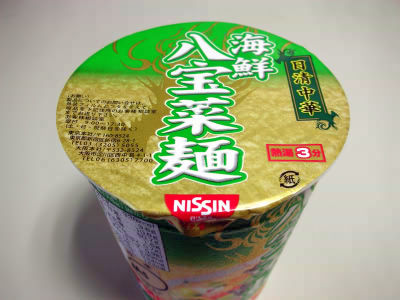Kirin and Meiji University succeed in developing 'chopstick-type device that enhances saltiness by 1.5 times'

A joint research team of Kirin Holdings and Meiji University has developed a ' chopstick-type device that enhances saltiness by 1.5 times by electrical stimulation .' It is expected to help reduce the risk of lifestyle-related diseases by reducing salt intake.
world's first! Confirmed the effect of increasing saltiness by about 1.5 times by utilizing electrical stimulation | 2022 | Kirin Holdings
https://www.kirinholdings.com/jp/newsroom/release/2022/0411_01.html
-A big step toward solving the 'health' problem by making the low-salt diet more delicious-The world's first * 1! Confirmed the effect of increasing saltiness by about 1.5 times by utilizing electrical stimulation — New technology leading to the development of “tableware with adjustable taste” — | Meiji University
https://www.meiji.ac.jp/koho/press/6t5h7p00003fh8kv.html
The World Health Organization (WHO) recommends keeping daily salt intake within 5g for a healthy life. However, according to the results of the National Health and Nutrition Survey released by the Ministry of Health, Labor and Welfare in 2019, the average daily salt intake is reported to be 10.9 g for men and 9.3 g for women, and Japanese people consume too much salt. The current situation is highlighted. On the other hand, many people said that the low-salt diet with a low salt content had a 'light taste', which was an obstacle to continuing the low-salt diet.
From 2019, the research team will start researching 'electric taste', a technology that artificially adjusts the taste intensity of food by adjusting the action of ions such as sodium chloride (salt taste) and monosodium glutamate (umami) with weak electricity. I was proceeding. As a result of this research, we succeeded in developing an electrical stimulation waveform that controls the salty taste and enhances the taste of the low-salt diet. In addition, he has also developed a chopstick-type device that incorporates an electrical stimulation waveform that enhances saltiness.

An experiment in which 36 men and women aged 40 to 65 years were asked to sample a sample imitating a general food (gel containing 0.80% salt) and a sample imitating a low-salt diet (gel containing 0.56% salt). The results showed that when the electrical stimulus that enhances the saltiness of the chopstick-type device was turned on, the saltiness was 1.5 stronger than when it was turned off.

In this presentation, the research team said, 'Using the results of this joint research, we will provide both the mental satisfaction of deliciousness and the health derived from nutritional aspects to those who have a low-salt diet. I will aim for. '
The Miyashita Yoshiaki Laboratory of Meiji University, which was involved in the development of this chopstick-type device, is developing various new taste-related technologies such as 'tasteable display' and ' real-time salty communication system '.
'We have developed a TV that Japan can taste' and talked about overseas --GIGAZINE

Related Posts:







